THE LEGAL REPORT
THE LEGAL REPORT IS THAT SOCIAL CONNECTION, REGULATED BY THE LEGAL NORM, CONTAINING A SYSTEM OF MUTUAL INTERACTION BETWEEN THE DETERMINED PARTICIPANTS, A CONNECTION THAT IS LIKELY TO BE DEFENDED THROUGH THE STATE COERCION.
More...We kindly inform you that, as long as the subject affiliation of our 300.000+ articles is in progress, you might get unsufficient or no results on your third level or second level search. In this case, please broaden your search criteria.
THE LEGAL REPORT IS THAT SOCIAL CONNECTION, REGULATED BY THE LEGAL NORM, CONTAINING A SYSTEM OF MUTUAL INTERACTION BETWEEN THE DETERMINED PARTICIPANTS, A CONNECTION THAT IS LIKELY TO BE DEFENDED THROUGH THE STATE COERCION.
More...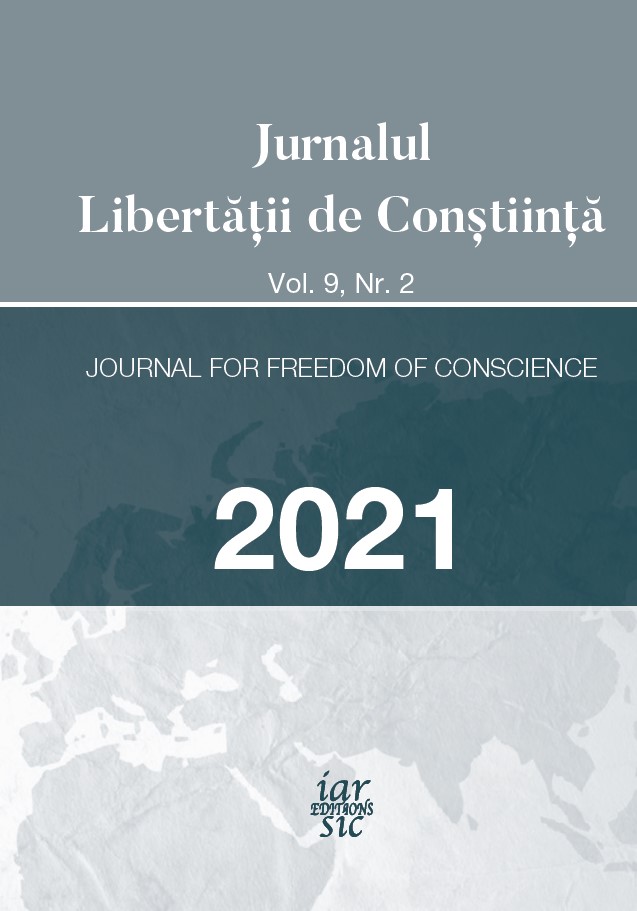
The origin of human nature is the foundation of human rights because it is considered that certain rights are inherent in the human being since creation. These rights are called the natural law that precedes the other rights and laws being universal having as source the Creator himself. How do different Christian traditions view the existence of natural law? What is the content of this natural right in understanding every Christian tradition? Norman Doe initiated an editorial project through which he offered the possibility to the representatives of the different Christian traditions to express their theological position and the practical implications towards the natural law. The result of this editorial project is in the book „Christianity and natural law: an introduction”. This article is a review of the book in order to shed light on the different perspectives of different Christian traditions on natural law and their implications for the internal and external life of the church.
More...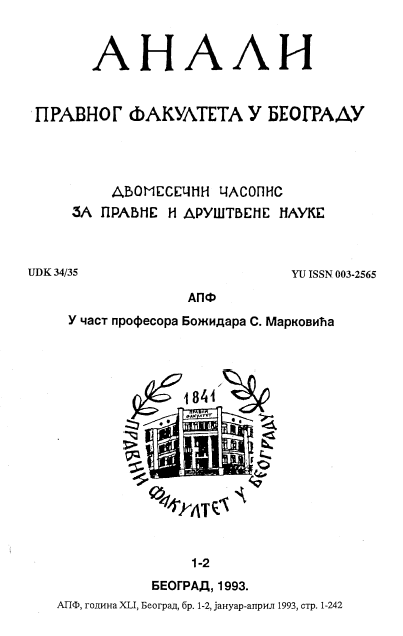
The state of law (Rechtsstaat) is an original notion of German spiritual and historical heritage which is related to the notion of the rule of law by common socio- -economic and political, and to a lesser degree theoretical, starting point. As predominantly legal-theoretical notion, it should solve the basic question facing the constitutionalism too, namely: the limitation of state power, due to the need for preserving individual liberties as the purpose of the state. Today the state of law is a formal-substantive notion; it is a legal form of the state power, namely the positive-legislative way of the existence of freedom, security, equality and justice. As a constitutional-political notion, state of law emphasizes the importance and inviolability of basic individual rights and liberties, limited and controlled government, as well as the division powers. It also presupposes the elements of social state, too. In spite of their close relationship, the state of law and the rule of law are distinguished both in historical and theoretical terms. Liberalism, which is their common basis, had in both cases different concrete-historical contents. In addition, while in case of the state of law there exists a natural connection between the state and the law, the power and vitality of common law have made possible that in case of the rule of law such connection does not exist. The evolution of the notion of state of law was aimed originally at the formal-positive direction (FJ. Stahl) only to reach the extreme variant in so-called "judicial state". With Weimar Republic, however, its substantive notion comes back and is expressed in the social state of law (H. Heller). In contemporary German legal theory, the state of law is at the same time a constitutional, legislative and judicial state.
More...


După cum am văzut , Michael Sandel, în critica sa făcută liberalismului lui John Rawls, scoate la iveală contradicţiile implicte ce decurg din construcţia ideatică a acestuia din urmă. El examinează principalele afirmaţii ale lui Rawls şi arată că ele vin în contradicţie cu ceea ce fundamentează sau cu ceea ce face posibil sau justifică conceptul său de liberalism. Revenind la chestiunea omului ca scop în sine şi la instrumentalizarea sa implicită, Sandel face referire la principiul diferenţei, adică la ideea că inegalităţile sociale permise în concepția lui Rawls trebuie să funcţioneze în favoarea celor defavorizaţii, că nu există merit şi că abilităţile, talentele, etc. naturale ale persoanelor nu sunt ale lor, ci aparţin de fapt corpului social şi prin urmare nu tot ceea ce rezultă din folosirea lor revine pe drept celor ce fac uz de ele.
More...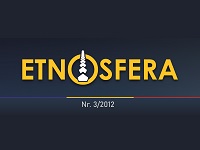
Punctul de plecare al acestui articol este cartea lui Michael J. Sandel Liberalism and the Limits of Justice. Această carte oferă o critică a liberalismului contemporan plecând de la una dintre operele teoretice centrale ale acestuia și este într-un anume sens o completare a acesteia. Cartea profesorului american îşi propune să ofere o critică a unui mod contemporan de a concepe liberalismul (liberalismul deontologic numit și liberalismul politic), aşa cum este el ilustrat exemplar de către J. Rawls în faimoasele sale cărți A Theory of Justice şi Political Liberalism și de către alții autori precum Ronald Dworkin.
More...
Some contemporany discourses and ideas have a long history that is forgoten, a history that should be know if one tries to understand some of the problems humanity is facing today in the era of globalization. The idea of sovereignity and the idea of human rights, that is sovereignty of the self-legislating and self-regulating autonomous individual, has a theological background. The main contention of this paper is to show that the concept of sovereignty has a clear theological origin and was meant to describe some atributes that belonged to God, then it was transfered on the human leader and to the state, thus becoming a concept of international relationships, and afterwards the concept was applied to the individual, which was being thought to be the bearer of sovereignty. This is a process that some contemporany thinkers have claimed to be nihilistic, because it provokes a divinization of man and human egoism, the distruction of our environment and social instability and of human relations, distruction of the family, being signs of this nefarious development.
More...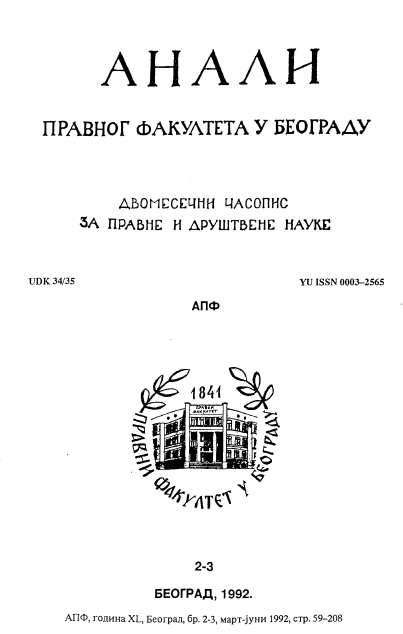
Regulation and administration are complex and composite categories that have at least two basic meanings: a) object management (e.g. industrial production), and b) ruling over subjects (e.g. the exercise of political power and force). The modern thought of "decomposing" the socio-tchnological complexity of "management-ruling" forms at the beginning of the XIX century with the idea that "ruling over people, should be substituted by management over objects". Theoretically, two main approaches two regulation can be identified: a) the legal and political approach: which sees social regulation as an attribute of state, defining it as the so-called legal function of state power: b) the socio-tehnological approach: that sees social regulation as a management activity, i.e. a specific activity of organized human communities. The turning point in the methodology and technology of regulation, originates and develops in the second half of the XX century, with the appearance of cybernetics, the application of mathematical models and implementation of information technology in the management of complex production and regulatory processes. Consequently, this creates preconditions for the appearance of complex interdisciplinary theories of the regulatory processes and regulatory institutions, as well as for new approaches to the regulation of social processes. Social regulation, is a form of regulation that does not approach the matter as "ruling over subjects", but as a communication process of legitimate interest interaction according to preset standards (with the aim of neutralizing the negative contingency effects that stem from the possible non-legitimate behavior of others in social interaction).
More...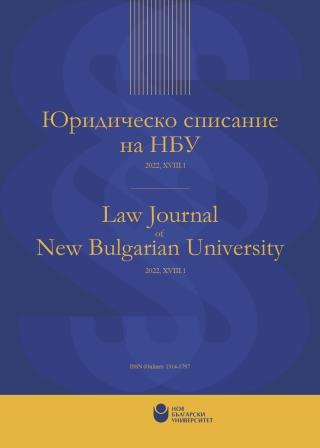
This article is an attempt to interpret the proposals for amendments of the Judiciary Act, prepared by the Ministry of Justice, containing regulations related to the closure of Specialized Public Prosecutor’s Office and the Specialized Criminal Courts there. In particular, the study focuses on the regulation related to the completion of pending court proceedings of specialized courts, through the prism of strict compliance with the well-known principle of constancy of the court in penal procedures. The author’s aim is to provide a complex of arguments to prove the fundamental importance of the principles of the Bulgarian criminal process, as an important basis of knowledge for planning and assessing the quality of each legislative initiative.
More...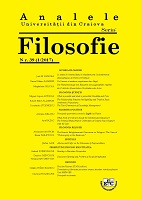
This article analyzes the Plato’s Laws dialogue and highlights the most important principles that our philosopher has established there as the basis of a strong, non-degradable state. For most of them, the author notices a resemblance to the rules governing the proper functioning of any democratic state, as it is understood today. This invalidates the idea that Plato promoted, avant la lettre, totalitarianism, although he admitted some practices familiar to its. However, these play a minor role compared to the philosopher's general vision of the state, contoured under the sign of Good and Justice.
More...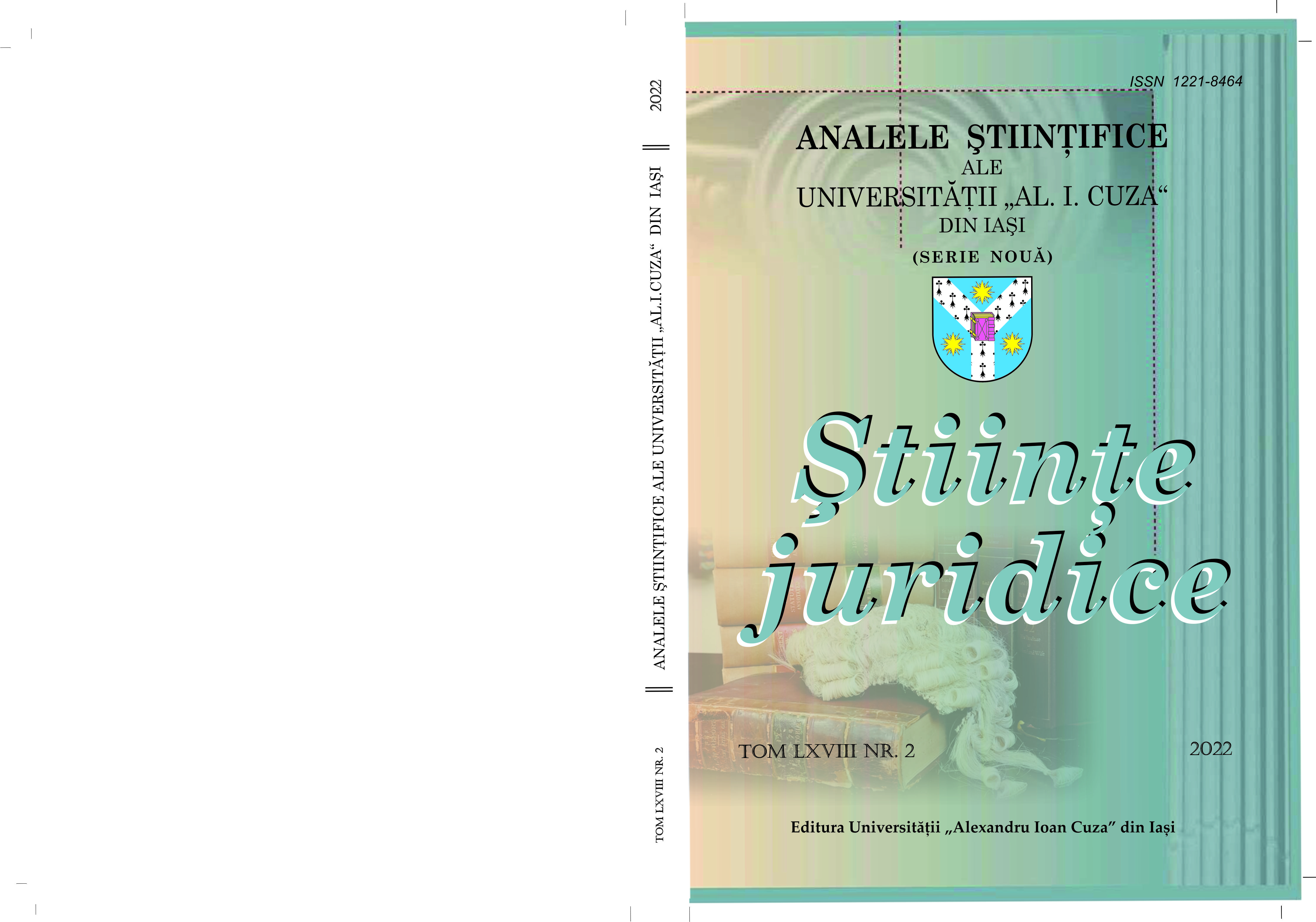
This paper aims to contemplate transnational (private) law, and such sui generis version of transnational law cannot neglect the concept of contract. The background of the dispute Banco Santander Totta S.A. v. Compannhia de Carris de ferro de Lisboa S.A. and others and the dispute itself fully exercises the above mentioned concept. In its transnational meaning, the concept of contract blurrs the distinction between domestic and international contracts. In the light of the concept of transnational contract, domestic contracts enable domestic private actors to enter financial markets which are beyond the political frontiers of the nation States. Such „beyond” situate us methodologically in the area of transnational law. Including in its „private” version.
More...
Not the least noticeable is the fact that the ancient Greek compound euthanasia, formed by Francis Bacon, has retained its original terminological form since it was first used in the 17th century. Among all other controversial (bio)ethical issues, however, the conceptual notion of euthanasia categorically evokes rather important controversies. The questions that arise in this context are whether there is a definition, or at least a determination, of the term euthanasia and whether we are aware of its use in scientific discourse, what exactly is euthanasia. The paper offers a terminological elaboration of the term euthanasia in a linguistic (lexicographic), but mainly legal and medical-procedural context, in order to examine the coherence in defining the term between these categories and, consequently, to determine the key determinants of euthanasia according to categorical sections. The key facts stated are the primary determination or the possible definition of the term for any further scientific study of euthanasia as one of the most controversial issues within bioethical doctrine.
More...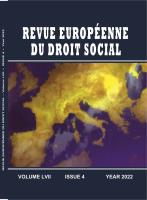
The article aims to analyze how the training process has been developed through disruptive teaching in the careers of Law, with the use of computer technologies as mediators in the teaching process. learning in the 2020-2021 period during the COVID-19 pandemic, which affected the promotion of the use of digital platforms and tools at the University of Granma within the Ministry of Higher Education, for the development of digital skills in teachers and students. The 21st century Knowledge Society is characterized by the appearance of digitization, leaving analog technologies behind and is based on the use of Information and Communication Technologies, telecommunications and the Internet on the web 2.0 platform. This paradigm shift has given way to the generation of an ever-increasing volume of information; opening a wide spectrum of new methods and techniques for the management of information and processes in the dissimilar sectors, from which the university is not alien in its training processes. Access to information changes, therefore, teaching methods must adjust to the new digital environment in which teachers and students operate in the 21st century, where the teacher is no longer the center of the class. El artículo tiene como objetivo analizar cómo se ha desarrollado el proceso de formación a través de la enseñanza disruptiva en la carrera de Derecho en el pregrado, con el uso de las tecnologías informáticas como mediadoras en el proceso enseñanza aprendizaje en los cursos 2019, 2020 y 2021 en la pandemia de COVID-19, la que incidió en el fomento del uso de las plataformas y herramientas digitales en la Universidad de Granma, para el desarrollo de competencias en profesores y alumnos. Para ello fueron utilizados los métodos de la investigación como el histórico lógico, el de análisis síntesis, revisión bibliográfica, e inducción deducción.
More...
The present text is divided into two parts. In the first we generally consider three forms of approximation to justice, in the first term some philosophical reflexions stand out, immediately after which we focus on the difficulties revealed by the laws in regards to the concept of justice and, lastly, we will recover some critical elements of social thinking from theoretical perspectives, to approach, thus, the question of justice. In the second part of this text we will present Chaïn Perelman’s thinking, in regard to his philosophy or regressive method and the consequences of his theory on argumentation, particularly on his text On Justice, here he clearly expresses and summarizes the relevance of epidictic rhetoric.
More...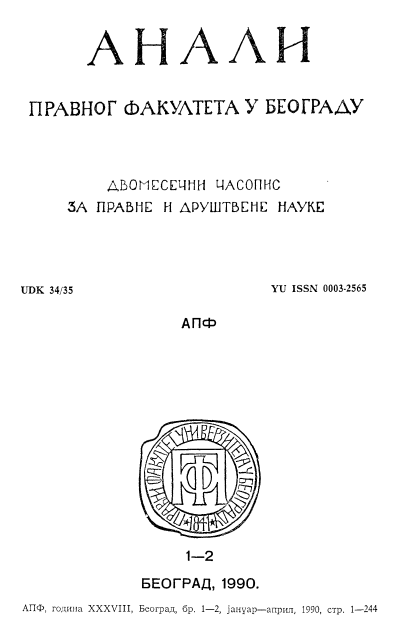
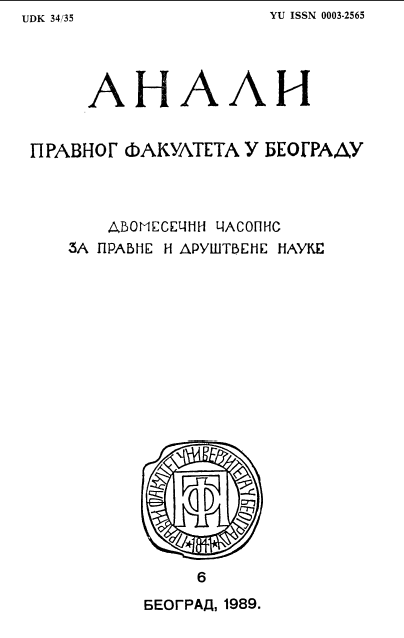
Creation of modem legal philosophy, whose founding fathers are Kant, Fichte and Hegel, can not be separated from the French Revolution. This relationship is not only chronological, but substantive, which means that modem legal philosophy emerged out of a very important discussion of problems imposed by the events connected with the French Revolution. Its modernity consists in taking over the principle of freedom proclaimed by the Revolution and raised to the level of a general right, while making it its foundation and its matter and elaborating the relevant consequences. A turn towards freedom, which takes the place of nature, means the opening of a new historical perspective of law: its ground becomes the freedom, while the law itself becomes its organon. In such a way French Revolution and legal philosophy have found themselves in a joint job: namely preparing and establishing political and legal existence of a modern man under the leading principle of freedom as an universal right. In the way of its formation, in its internal structuring in exposition of problems, in its very being ang general character, modem legal philosophy belongs to the historical horizon of the French Revolution. This has made possible, also, that it contains the legal and political truth of that Revolution.
More...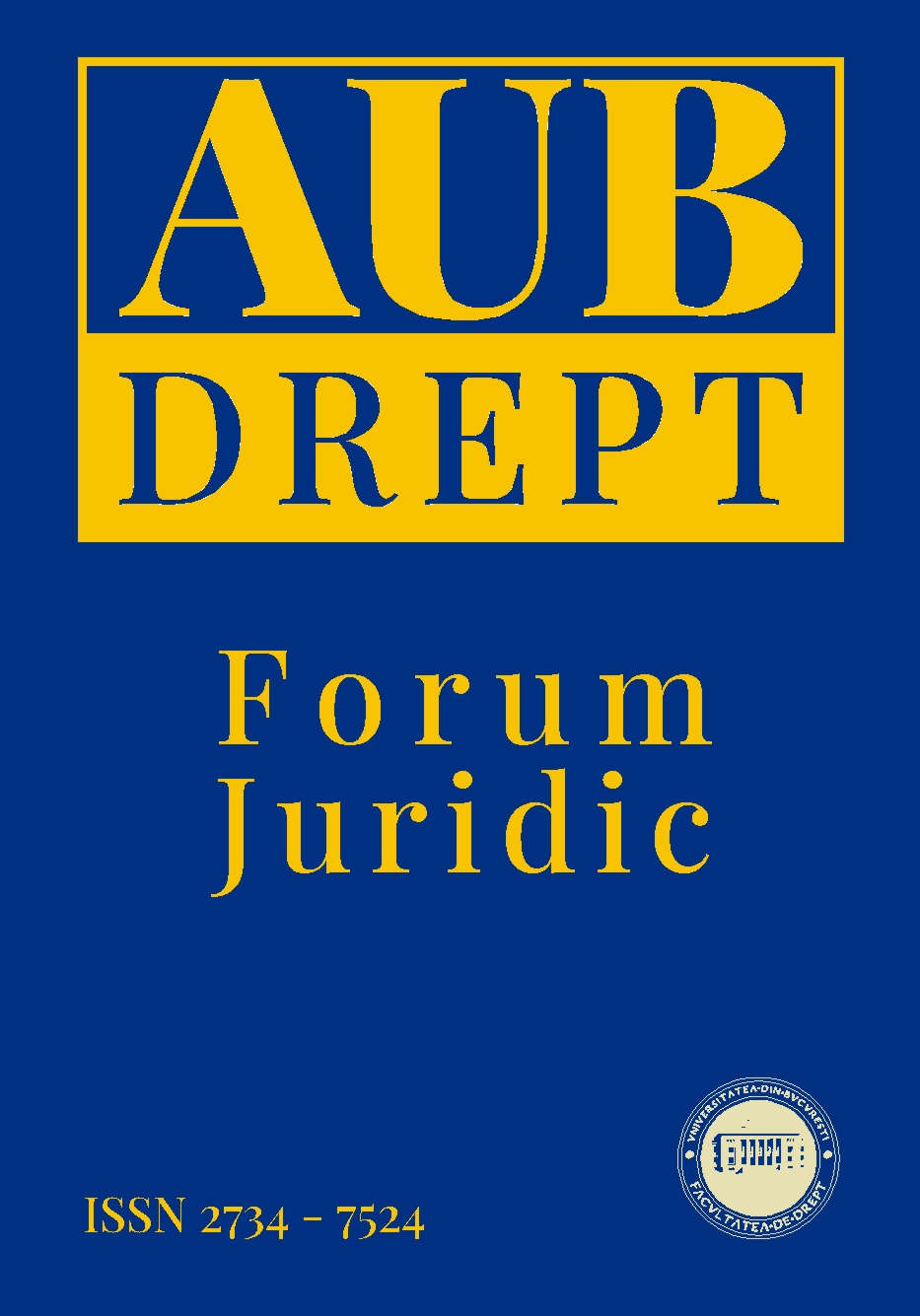
Lucrarea de față își propune să păstreze deschisă discuția cu privire la necesitatea formulării unei teorii care să seteze linii directoare pentru exercitarea justă a discreției judecătorilor aplicabile în demersul individualizării pedepselor. Pentru a îndeplini acest obiectiv, se expune esența lucrării lui John Rawls, Two concepts of rules, în care autorul prezintă pe scurt criticile aduse justificării pedepsei în temeiul teoriilor utilitariste de către adepții teoriilor retributive, în special cu privire la problema pedepsirii persoanelor nevinovate, apoi propune o soluție pentru rezolvarea acestora. Soluția sa, formulată de asemenea natură încât să devină aplicabilă general, este analizată în contextul judiciar românesc prin raportare la un caz ipotetic, urmărindu-se demonstrarea faptului că demersul lui Rawls, deși legitim, este insuficient, iar problemele justificării utilitariste a pedepsei rămân valabile cel puțin în parte.
More...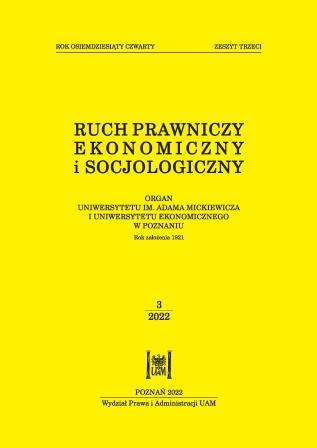
This study concerns the legal nature of the so-called counter-types and is a response to polemical remarks by Mikołaj Iwanski, Mikołaj Małecki, Szymon Tarapata and Witold Zontek. The considerations are conducted on the basis of the rules of the derivational theory of legal interpretation, the concept of the interpretation of law, and the principles of legislative technique, and in the light of the issues associated with basic legal modalities. On this basis, it is established that the provisions establishing countertypes are modifiers of the content of incomplete central provisions, and that they change the scope of application of norms sanctioned in criminal law, but do not modify sanctioning norms. Conduct performed under the conditions of the countertype does not involve exceeding the sanctioned norm and is an act that is legally indifferent, but not legally neutral. The proposed approach cannot be equated with the theory of negative elements of a prohibited act.
More...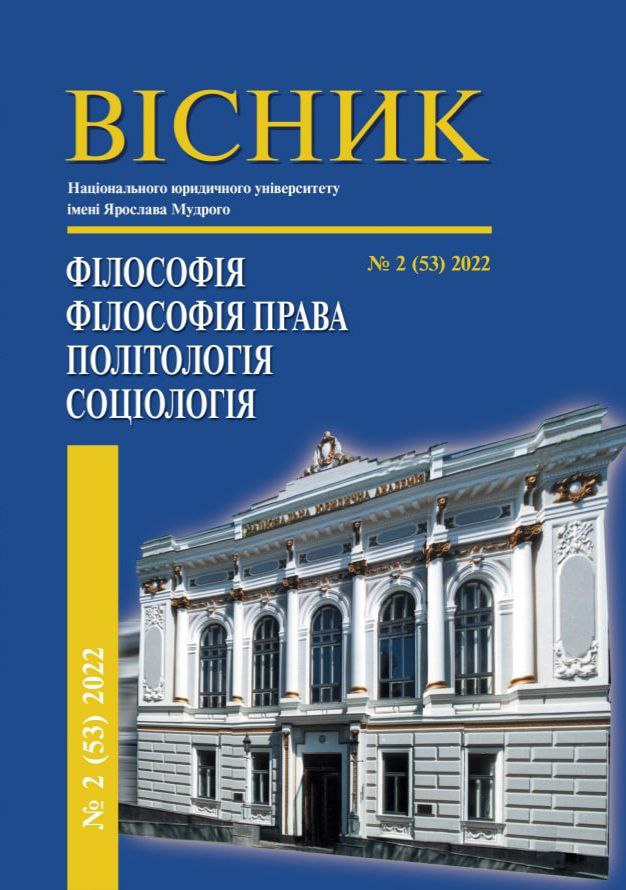
The publication is devoted to a review of scientific publications of foreign scientists on the regulation of cyberspace. Emphasis is placed on the interest of foreign science in this field, on the one hand, and the lack of a unified strategy for the study of cyberspace, on the other hand. Special attention is paid to the human right to data confidentiality in cyberspace.
More...